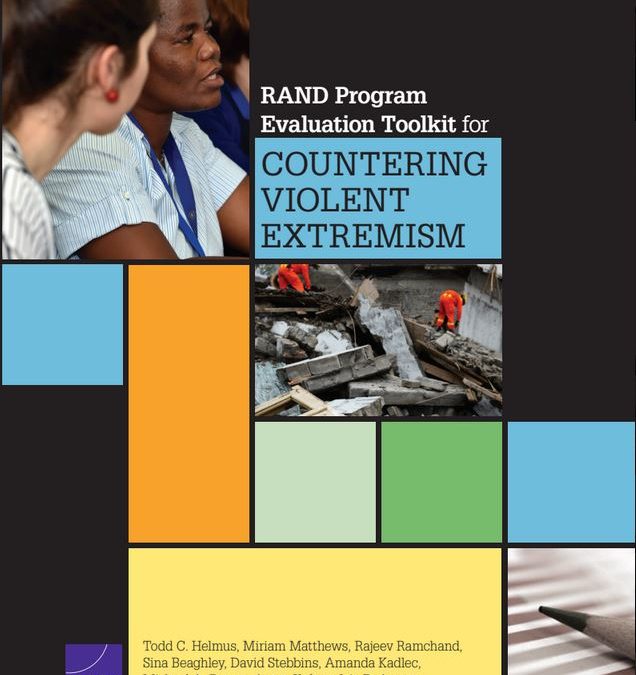RAND Program Evaluation Toolkit for Countering Violent Extremism

Radicalization: A Guide For the Perplexed (June 2009)
May 23, 2022
Improving the impact of preventing violent extremism programming
May 23, 2022A RAND Project – USA
RAND Program Evaluation Toolkit for Countering Violent Extremism.
This toolkit is based on RAND’s Getting To Outcomes® (GTO) approach, an evidence-based model designed to help community-based programs conduct self-evaluations. We spe-
cifically adapted this toolkit from the RAND Suicide Prevention Program Evaluation Toolkit, published in 2013 and available online at www.rand.org/t/TL111. The GTO approach, and its application to the assessment of suicide prevention programs, provided an excellent founda-tion for this toolkit. First, like violent extremism, suicide is a very rare event that involves both thought (motivation) and action (violence). Programs that work to prevent suicide, like those that aim to prevent violent extremism, are challenged to produce evidence that the program has actually prevented suicides (or, in this case, extremist acts). Thus, these toolkits recommend the use of proximal outcomes for both types of programs. To adapt the Suicide Preven-tion Toolkit to address CVE programming, RAND researchers examined the peer-reviewed literature and other evaluation toolkits and elicited feedback from program staff responsible for implementing CVE programs.
The contents of this toolkit will be of particular interest to managers and directors of community-based CVE programs, as well as program funders. Although the toolkit is tailored
to the needs of evaluators with limited prior experience, the contents may also be of interest to academic program evaluation experts who assist programs with evaluations or conduct studies of program effectiveness.
A companion document, Development and Pilot Test of the RAND Program Evaluation Toolkit for Countering Violent Extremism, provides additional background on the toolkit’s
development and refinement and is available online at www.rand.org/t/RR1799.
Related posts
JOIN OUR MAILING LIST
©2022 ERIM. All Rights Reserved.






